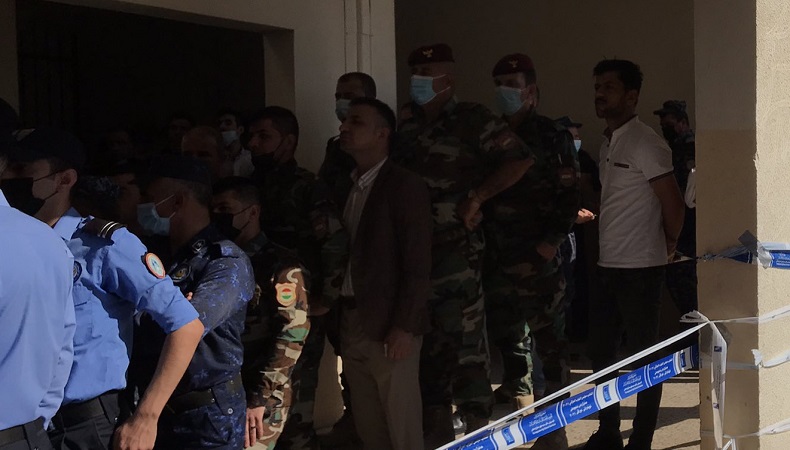Elections in Iraq, but weapons and money still dominate the scene


Alongside internal problems, Prime Minister Mustafa al-Kadhimi’s executive handles the age-old question of the US presence on Iraqi soil. These efforts become all the more critical due to the tensions affecting the region for some time. To carve out a mediating role with its neighbors, Baghdad organized the Conference for Cooperation and Partnership in the capital with representatives of the leading regional and international players.
A total of 3,249 candidates approved by the Iraqi Independent High Electoral Commission (IHEC) will participate in the competition for 328 seats on the Council of Representatives, the sixth of its kind since the birth of the new Republic of Iraq. Of these, 951 are women (equivalent to almost a third of the total), while 67 candidates are eligible for seats reserved for minorities.
Initially scheduled for June and later postponed to guarantee “freedom and fairness” to the entire electoral process, the elections are the first to be held after the widespread protests passed through the main Iraqi cities since October 2019. Despite the risks associated with the pandemic and the security issue, the current executive considered it necessary to take the path of voting to meet the request for change from those movements that led to the fall of the government of the then Prime Minister Adel Abdul Mahdi. In addition to the early elections, the Iraqi squares demanded an end to corruption and an end to dividing political offices based on sectarian affiliation.
The armed group Asaib Ahl al-Haq – accused of attacks on American forces and listed by the United States as a terrorist organization – is just one of the paramilitary factions whose political wings are likely to win parliamentary seats on Sunday’s vote. The 7th-century Battle of Karbala banner image and a contemporary quote promising vengeance to send a message to all who pass: militant defense of Shia Islam.
As the New York Times correspondent writes, eighteen years after the United States invaded Iraq and overthrew a dictator, the run-up to the country’s fifth general election highlights a political system dominated by guns and money and still widely divided, along sectarian and ethnic lines. The race is likely to bring the same key players back to power, including a movement loyal to the Shiite cleric Muqtada al-Sadr, a coalition linked to Iranian-backed militias, and the ruling Kurdish party semi-autonomous region of Iraqi Kurdistan.
Other prominent figures include a Sunni businessman under US sanctions for corruption. Anti-government protests, he said many people in his middle-class constituency had planned to boycott the elections but changed their minds.




